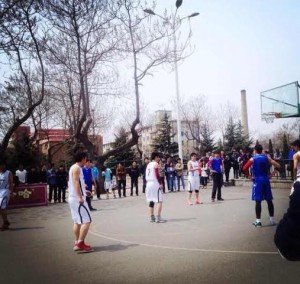I was raised in a two-smoker household, but now I find the whole habit puzzling, fascinating, telling. I live in China, so it’s a new — no, it’s a whole old ballgame, one of many ways in which China is very 1960s despite the high-rise towers and the accessorized smart-phones. There is great social pressure on men to smoke, and restaurants have the bluey-grey atmosphere of my childhood. Women, meanwhile, rarely do, but it’s becoming fashionable for the young and superchic women in places like Beijing’s Sanlitun neighbourhood. In this, maybe it’s more like the ’40s, when my mother’s “girls” in the secretarial pool were ecstatic when she lit up in front of them: “You’ve started!”
Smoking is a bizarre convention. It’s weird in so many ways. I’m much too highly evolved to engage in such a destructive and wasteful habit — I prefer potato chips — but as smoking became an awkward and shunnable offence over the past couple of North American decades, I started to notice that puffers had some advantages I didn’t, and some wisdom I could’ve used. I just posted an article to this effect from 2005, one of a bunch that never saw the light of publishing day. It’s in the On Second Thought section. Also, the so free and easy to subscribe it’s almost sinful button is just over there on the right.
Where do I start? you may be wondering if you’re new to JamesHowden.com . One way is to look at Eighteen Great Posts from 2013. You can see the list here, with delectable links if you want to go read them (again).




